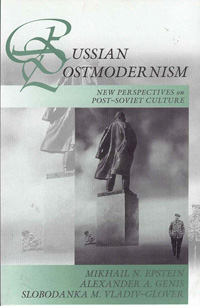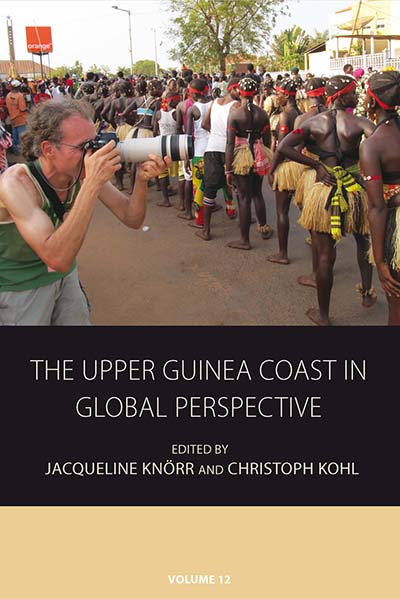
See Related
Cultural studies JournalsEmail Newsletters
Sign up for our email newsletters to get customized updates on new Berghahn publications.
Russian Postmodernism
New Perspectives on Post-Soviet Culture
Mikhail N. Epstein, Alexander A. Genis, and Slobodanka M. Vladiv-Glover
Translated by Slobodanka M. Vladiv-Glover
602 pages, appendix, index
ISBN 978-1-78238-864-7 $45.00/£36.00 / Pb / Published (December 2015)
eISBN 978-1-80758-314-9 eBook
NEW & REVISED PAPERBACK EDITION
Reviews
“Authors of this volume are well-known specialists in Russian literature and culture… This collection of essays has considerable cultural and documentary value (a second edition proves this) and may inspire everyone with interesting cultural paradigms and thoughtful observations… [It] raises many crucial issues and opens up new perspectives on research in the mentioned fields.” · Slavic and East European Journal
"Subtle readings and carefully argued interpretations. The articles and manifestoes, supplemented by a valuable 'Who's Who,' answer a great many of the questions associated with postmodernism in general, and the Russian variety in particular." · Slavic Review
"The most up-to-date reference book on Russian postmodernist culture. An important contribution to the growing area of Russian cultural studies." · New Zealand Slavonic Journal-Russian Section
"The most comprehensive examination of Russian postmodern thought available in English." · World Literature Today
Description
Recent decades have been decisive for Russia not only politically but culturally as well. The end of the Cold War has enabled Russia to take part in the global rise and crystallization of postmodernism. This volume investigates the manifestations of this crucial trend in Russian fiction, poetry, art, and spirituality, demonstrating how Russian postmodernism is its own unique entity. It offers a point of departure and valuable guide to an area of contemporary literary-cultural studies insufficiently represented in English-language scholarship. This second edition includes additional essays on the topic and a new introduction examining the most recent developments.
Mikhail N. Epstein was one of the main proponents of postmodernism in Russia and the founder of the Laboratory of Modern Culture, Experimental Center of Creativity, Moscow. He is S. C. Dobbs Professor of Cultural Theory and Russian Literature at Emory University (USA) and Professor of Russian and Cultural Theory, Director of Centre for Humanities Innovation, at Durham University (UK).
Alexander A. Genis is a Russian-American writer, literary critic, broadcaster, and author of multiple books and essays about classical and modern Russian literary studies and contemporary cultural studies.
Slobodanka Millicent Vladiv-Glover is Adjunct Associate Professor in the School of Languages, Literatures, Cultures and Linguistics at Monash University. She is Chief Editor of The Dostoevsky Journal: An Independent Review and Transcultural Studies: A Series in Interdisciplinary Research.


